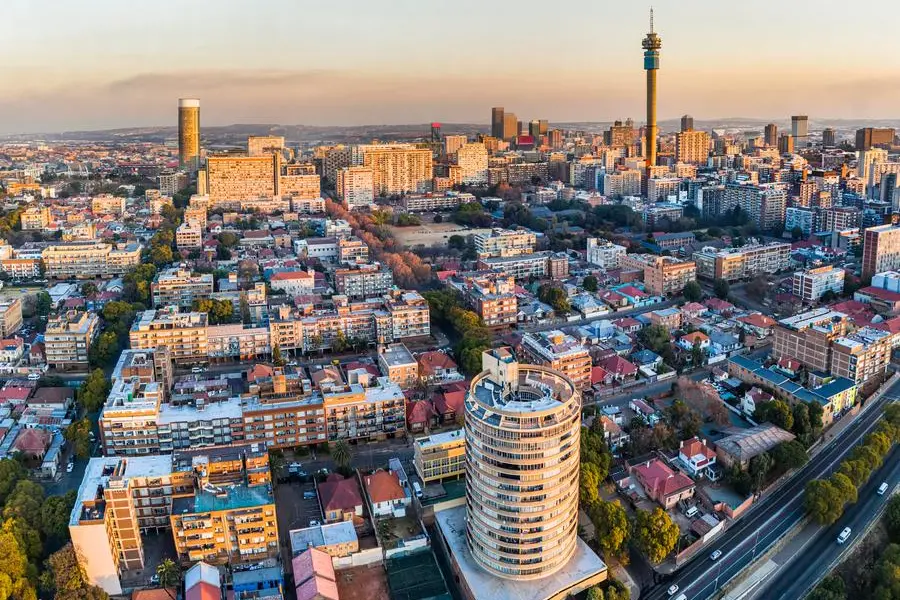PHOTO
Luxury real estate market operates in a distinct realm, driven by a niche group of buyers with a unique set of preferences and expectations and, unlike mainstream homes, luxury properties are not simply defined by their price tag.
“These properties represent a combination of key features, including exceptional craftsmanship, prime location, architectural innovation and exclusive amenities.
"Purchasing such a property in this sector is not merely buying a home but also a lifestyle upgrade for affluent individuals seeking privacy, exclusivity and superior quality,” says Arnold Maritz, co-principal for Lew Geffen Sotheby’s International Realty in Cape Town’s Southern Suburbs.
“What sets this market apart is its relative insulation from economic fluctuations. While lower and mid-market housing may ebb and flow with interest rates and broader economic conditions, the luxury segment generally remains more resilient.
“Wealthy buyers often see high-end property as both a lifestyle choice and an investment and, for them, a luxury property is not just a place to live but a status symbol, a retreat, and sometimes even a portfolio asset.
“Consequently, the features they seek—and the ones they avoid—can make or break a sale so understanding these factors is crucial for sellers, developers, and agents aiming to succeed in this competitive market."
Maritz adds that sellers who are struggling to sell their properties need to step back and look at their homes objectively and if they lack any of the important features or have any of those that can deter buyers, a price adjustment might be necessary.
Buyer turn-offs
According to Maritz, there are seven key features that buyers will look for in a luxury property:
- A prime location is a non-negotiable factor for these buyers. Proximity to financial hubs, cultural landmarks, or natural beauty—such as ocean fronts and mountain views—often dictates the desirability of a property. Additionally, being situated in exclusive neighbourhoods or in exclusive gated communities with security and privacy significantly boost a home's appeal.
- Another factor is architectural excellence because luxury buyers expect homes that are as aesthetically stunning as they are functional. Custom designs, unique features and architectural pedigree (such as being designed by a renowned architect) can significantly elevate a property. Modern, minimalist designs and eco-friendly architecture are currently particularly popular among contemporary buyers.
- From infinity pools and private spas to state-of-the-art home theatres and smart home integration, high-end amenities are also a must. Buyers are increasingly seeking features like climate-controlled wine cellars, chef-grade kitchens and wellness-oriented spaces such as yoga studios or gyms. And in today’s tech-savvy world, homes with advanced automation systems that control lighting, security, and climate are especially in demand.
- A non-negotiable is privacy and security for these buyers, especially as they are often high-profile individuals. Features such as expansive grounds, strategic landscaping, or gated entrances offer much-needed seclusion and advanced security systems, including surveillance, biometric access and professional security services, are also vital.
- Sustainability and eco-friendly design are increasingly high on the list as environmental consciousness is becoming a significant factor in luxury real estate. Many buyers now favour homes built with sustainable materials and designed for energy efficiency, and features like solar panels, energy-efficient climate control systems and green roofs are attractive to eco-minded clientele.
- Luxury buyers generally prioritise homes that extend their lifestyle outdoors and impeccably designed gardens, terraces with breathtaking views, outdoor kitchens and entertainment areas add significant value. Features like heated pools or tennis courts also cater to affluent buyers seeking recreational spaces.
- And finally, most luxury home buyers want to be in close proximity to elite services such as high-end shopping, top-rated restaurants, private schools and exclusive clubs which all enhance the desirability of a property. Some buyers also value access to private docks and golf courses, depending on the location.
According to Maritz, there are also a number of features that deter luxury home buyers and, as they can afford to be picky, any of these can cause them to dismiss a property and move on to the next one:
- Generic design: Luxury buyers often steer clear of homes that lack personality or bespoke design elements and a cookie-cutter approach to architecture and interiors can be a deal-breaker. This demographic seeks properties that are distinct and tailored to a refined taste.
- Poor maintenance or outdated features: A poorly maintained property, even in an excellent location, is a red flag to these buyers as are outdated interiors, old-fashioned appliances or neglected landscaping which can deter buyers who expect move-in-ready perfection. In the luxury sector, every detail must reflect excellence.
- Inconvenient layouts: Luxury buyers expect seamless flow and functionality. Awkward room layouts, wasted spaces, or an inadequate number of bedrooms and bathrooms can diminish a property’s value. Spaces should be designed with entertainment, relaxation and practicality in mind.
- Lack of privacy: Homes that are too close to neighbours or situated in bustling areas without adequate seclusion may turn away buyers who very often seek a private retreat. Noise pollution or exposure to public view detracts from the exclusive feel that defines luxury living.
- Limited customisation potential: While some buyers prefer turnkey properties, others value the ability to personalise their space. Homes with overly specific or niche designs that limit customisation may alienate prospective buyers. Neutral palettes and flexible layouts tend to appeal more broadly.
- Compromised views or surroundings: A property with obstructed or unattractive views, such as overlooking commercial zones or busy highways, can be a significant deterrent, no matter how beautiful the house. Luxury homes should harmonise with their surroundings, offering natural beauty or captivating cityscapes.
“Luxury homes are not just properties; they are lifestyle statements that encompass comfort, beauty, and exclusivity, and buyers in this segment demand the best so understanding these nuances is critical to capturing the attention—and investment—of this elite market,” concludes Maritz.
All rights reserved. © 2022. Bizcommunity.com Provided by SyndiGate Media Inc. (Syndigate.info).




















